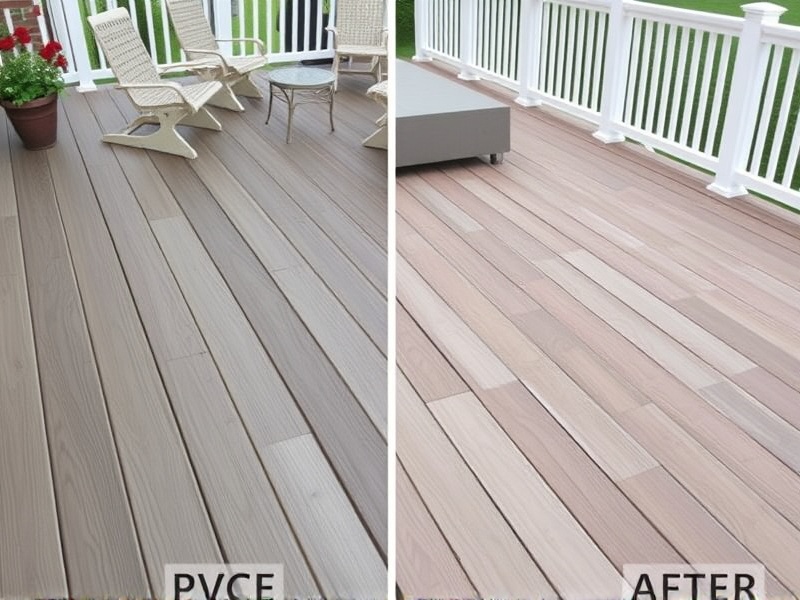Our Location
304 North Cardinal St.
Dorchester Center, MA 02124
Explore the pros and cons of PVC and composite decking options to help you make an informed decision. Understand which material suits your lifestyle and budget best.

When it comes to building or renovating a deck, choosing between PVC (Polyvinyl Chloride) and composite decking materials can be a daunting task. Both options offer unique benefits and drawbacks, making it essential to weigh various factors before making a decision. In this comprehensive guide, we will delve into the advantages and disadvantages of both PVC and composite decking, considering aspects such as initial cost, longevity, aesthetics, and ease of maintenance. By the end of this article, you should have a clearer understanding of which option might be best suited for your project.
PVC decking is known for its durability and resistance to moisture, making it an excellent choice for areas prone to high humidity or frequent rainfall. Unlike wood, PVC does not rot, warp, or splinter, ensuring a long-lasting and low-maintenance deck. Additionally, PVC is easy to clean, requiring only soap and water to maintain its appearance. Another significant advantage is its consistent color throughout the material, reducing the need for periodic staining or painting.
One of the primary drawbacks of PVC is its higher initial cost compared to traditional wood or even composite materials. While PVC may require less maintenance over time, the upfront investment can be substantial. Furthermore, PVC can become brittle in colder temperatures, potentially leading to cracking if not properly cared for. Lastly, PVC decks may not provide the same natural aesthetic appeal as wood, although advancements in manufacturing techniques have made modern PVC products more visually appealing.
Composite decking is a blend of wood fibers and plastic, offering a balance between natural wood aesthetics and improved durability. This combination results in a product that is resistant to moisture, insects, and UV damage, similar to PVC but with a more authentic wood-like appearance. Composite materials are also relatively easy to install and maintain, requiring minimal upkeep beyond occasional cleaning.
The main disadvantage of composite decking lies in its susceptibility to fading and discoloration over time due to prolonged exposure to sunlight. Although composite materials are more affordable than PVC, they still tend to be pricier than traditional wood. Additionally, composite decks may require replacement of individual planks if damaged, unlike PVC, which can often be repaired more easily.
Both PVC and composite decking offer attractive alternatives to traditional wood, with composite materials generally providing a more natural look. However, PVC’s consistent color can make it preferable for those seeking a uniform appearance without the need for regular touch-ups. When it comes to maintenance, both options require significantly less effort than wood, but PVC tends to be easier to clean and maintain due to its non-porous surface.
In conclusion, the choice between PVC and composite decking ultimately depends on your specific needs and preferences. If budget constraints are a priority and you prefer a more natural appearance, composite decking might be the better option. On the other hand, if durability and minimal maintenance are key considerations, PVC could be the way to go. Always consider the climate conditions in your area and consult with professionals to ensure you select the most suitable material for your deck project.